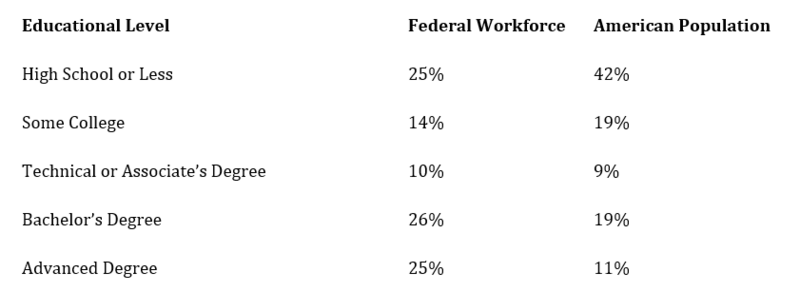ATD Blog
Is Defense of Federal Pay Missing the Point?
Thu Dec 07 2017

Like a zombie you just can’t put down, there are new discussions of a federal pay freeze and other cuts to benefits. This idea comes back at least once a year and is usually connected to studies of the supposed public-private pay gap. It’s intensely frustrating as a public servant to see your elected representatives take the easy way out and claim that they can balance the budget on your back. But, what if the way we defend ourselves makes things worse?
The response to these figures is fairly consistent. Federal employees and their advocates argue that the studies are flawed because they don’t count cost of living differences between regions, they don’t count how many more federal employees are white collar professionals than in the private sector, and they generally distrust the sources of this information. The overall theme of this response is defensiveness, which leads to quotes like this from one federal union president, “While many private sector employers have eliminated or slashed health insurance and retirement benefits, especially for lower-paid employees, there is no justification for the federal government to join this race to the economic bottom.”
Over the past few years, the federal workforce has lived through pay freezes and government shutdowns, as well as a constant refrain from politicians that federal employees should be paid less. A little defensiveness is to be expected. Unfortunately, it’s getting in the way of being able to put ourselves in the shoes of our fellow citizens and connect to them, which is necessary to do our jobs, much less to protect our pay.
If you are one of the unfortunate American workers who have lost their benefits, you’re going to have a tough time taking much pride in the idea that most federal employees are making more than you. Because federal employees feel like they’re under siege, they are acting like a distinct group and reinforcing the separation between the public and their servants. The reality is that while federal employees didn’t necessarily create the inequality that drives so much anger at their pay, they are still symbols of it, and thinking only of themselves as victims can make the problem much worse.
And even if you reject the idea that federal employees are overpaid, there is a gap between them and the general public. The federal workforce is skewed towards college-educated professionals, which drives up its average pay:

Sources: OPM Data, Census Data
Data also shows that the share of the federal workforce with an advance degree has been rising for the past 25 years, while the share with only a high school education has almost been cut in half. If the goal is a federal workforce that resembles, and understands, the American population, then that vast difference in educational backgrounds is a huge problem. We’ve all heard about the ways in which the economy has changed over the last 20+ years, often hurting regular people in the process. This dynamic of anger and distrust is a consequence of those changes.
It’s worth remembering too that even federal employees question federal pay, they just don’t think of themselves are part of the problem. According to the 2017 Federal Employee Viewpoint Survey, only 25 percent of employees believe that pay raises depend on how well employees do their jobs and only 36 percent believe differences in performance are recognized in a meaningful way. Meanwhile, 61 percent are satisfied with their pay, which is better, but none of this adds up to a ringing endorsement of the current pay system. It might help trust for citizens who reflexively criticize federal pay to realize that there is a diversity of opinion inside the system as well.
There is no path to a better, more trusting relationship between federal workers and citizens that involves anger and defensiveness. Taking the mental leap to see where someone else’s anger is coming from--even if that anger is unfounded--is hard, but it’s the only way to move forward. If remember that the citizens who question our pay and seem to attack us are still part of our family and friends, and that we are here to serve them, we can take the first steps towards resolving their concerns in a way that’s fair to everyone.
You've Reached ATD Member-only Content
Become an ATD member to continue
Already a member?Sign In
